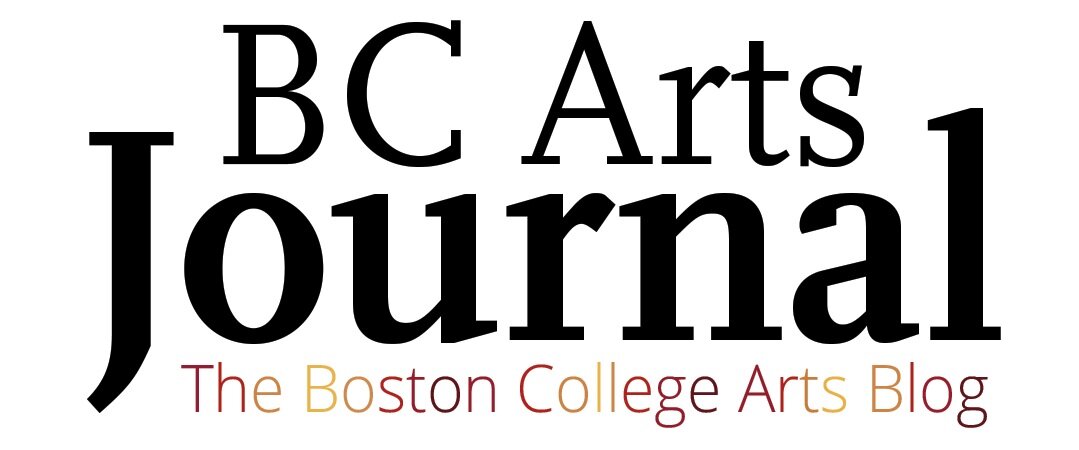Reflecting on the Freshman Arts and Social Justice Projects
by Katy Gilmore ‘24
In response to the numerous political, societal, and cultural changes which have occured recently, the Arts Council revamped its freshman internship to begin a dialogue on campus about the intersection of social justice and the arts. Every week one of the interns gives a presentation based on a topic of their choice relating to the arts and social justice— other interns as well as any willing members of the BC community are welcome to attend. As one of the freshman interns, I have been fortunate enough to attend two of these presentations, and I hope to share the wisdom and reflections I gained from them here.
The first talk I attended was “From the Outside In: Literature, Art, and the Refugee Experience” given by Flora Peng ‘24 on March, 11. The central focus of her presentation was evaluating how narratives of refugees can be told through the arts (specifically literature) and how these stories shape the way we talk and think about the migrant experience. She began by providing lists of terms to consider including buzzwords and key phrases that come up in conversations related to both identity and immigration. One term that I have remained thinking about since the presentation is ‘hyphenation.’ This term relates to whether or not a hyphen is included when talking about race and the connotation it gives the word (i.e. Asian American vs. Asian-American). I think this term speaks to the power of language in that a single symbol can alter the meaning of a word that is so personal and can truly impact identity. Flora then had us read excerpts from three different works: one from a book by a survivor of the Sudanese Civil War, one from a poem by a displaced Palestinian man, and one by a Mexican-American woman commenting on how we talk about ‘illegal’ immigrants in the US.
My biggest take-away from Flora’s presentation was the power literature has as a tool for shaping the way outsiders view and talk about sensitive subjects such as refugee stories. For each of the works presented, someone in the group made a comment about how the works personalized stories that most of us (as non-refugees) are otherwise distanced from. I left the meeting with an emphasized appreciation for how the arts can raise awareness and tell stories that get buried under news cycles.
I then went to the presentation, “Music for Change” given by Genevieve Rhodes ‘24 on March, 18. The concentration of her project was how social movements manifest through music with a specific focus on songs released since the surge of the Black Lives Matter movement this past summer. She started by presenting a brief timeline of events related to police brutality beginning with the murder of Trayvon Martin in 2013; she mentioned that the hashtag “#blacklivesmatter’ had been used thirty million times on twitter between 2013 and 2018. The heart of her presentation consisted of us listening to three songs by black artists, released following police murders including George Floyd’s death (“Sweeter” by Leon Bridges, “Sad News” by Swizz Beatz, and “I Can’t Breathe” by H.E.R.). Here, we discussed what lyrics surprised us and which ones we personally connected with.
In our discussion we were able to trace certain themes that prevailed throughout each song and in other art we had seen or heard outside of this presentation. We talked about how each piece touched on the idea that for every innocent black person that falls victim to police brutality, the entire race feels that pain and bears that burden. By finding connections between these songs, other literature and artwork, and other historical events, we investigated the complex relationships between the arts and social movements that exist today and throughout history.
These projects through the Arts Council internship have been a welcome and eye-opening addition to freshman year, a fact which I can personally attest to. Through all of the research Flora, Geneveive, and each of us have done, we have been able to investigate more into the issues we care about and discover more about ourselves along the way. Everyone was given the freedom to choose their topics, and so each of us have put a part of ourselves into the work we’ve done this year. Flora explained in her presentation that this project allowed her to combine her love for literature with her passion for migrant and refugee equality to start an engaging conversation around these themes. In her presentation, Genevieve talked about how she has been involved in music her whole life, and this project allowed her to explore more deeply the specific political and cultural impacts music can have.
In reflecting on these two meetings and in researching my own topic, the idea that has stood out to me is how the arts have the power to change the way we view the events and struggles that affect different minority groups. When we introduce the arts into dialogues about social and political issues, we can have a more nuanced discussion about how society learns and continues to perceive these matters. It is vital that we continue to have these conversations about topics such as the refugee crisis and the Black Lives Matter movement, especially in times when they may not be at the forefront of our minds. We must continue to broaden the awareness, dialogue, and knowledge generated around these issues.
The Arts and Social Justice discussions are held weekly on Thursdays at 6pm. For the weekly meeting, schedule, and Zoom link visit tinyurl.com/artsandjustice
